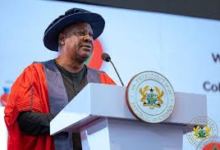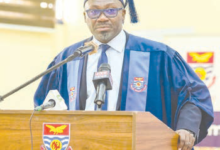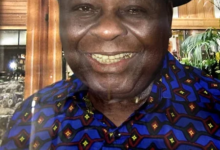WHO-IPU high level confab champions amendments to Int. health regulation

The Director-General of the World Health Organisation, Dr Tedros Adhanom Ghebreyesus, has entreated all countries, especially Africa, to participate fully in the ongoing amendments to international sector health regulations and the new pandemic accord.
Dr Ghebreyesus said the new accord presents the world with the opportunity to find lasting solution to dealing with pandemics.
“Amendments to international sector health regulations and the new pandemic accord that WHO members are now negotiating, will both provide the vital legal framework for enhanced preparedness.
“We urge all countries to engage actively in this negotiations especially African countries which are the most to gain from stronger HR and strong accord,” Dr Ghebreyesus said.
He made this call in a video conference from his base in New York, USA, at the opening session of the ongoing three-day WHO-Inter Parliamentary Union (IPU) parliamentary high level conference on strengthening health security preparedness in Accra, yesterday.
Member states of the WHO in June this year agreed to a global process to draft and negotiate a convention, agreement or other international instrument under the Constitution of the organisation to strengthen pandemic prevention, preparedness and response.
According to Dr Ghebreyesus, parliament and parliamentary associations are uniquely positioned to transform those commitments into reality.
The WHO and IPU, he said have published a handbook for parliamentarians on strengthening health security preparedness through legislation, finance, governance and accountability, with the special focus in cross-sector coordination.
“We also urge all countries to build resilient health systems based on strong primary healthcare which are the foundation of both health security and universal health coverage,” the WHO boss added.
The Health Minister and MP for Dormaa Central, Kwaku Agyeman Manu, said health emergencies exert heavy tolls on African health systems and economies and threaten to erase decades of hard-earned gains.
The COVID-19 pandemic, he said exposed the weak global preparedness towards public health threats and the inequity in the global economy in terms of pandemic commodities including vaccines and simple PPEs; a situation he said called for a review of existing international instrument that guides the global response to such public health.
To this end, he said the progress made in the work of the Intergovernmental Negotiating Body (INB) to draft and negotiate a WHO convention, agreement or other international instrument on pandemic prevention, preparedness and response, and the working group on the International Health Regulations to consider amendments to international health regulations were remarkable.
Ghana, he said sides with the position of the Africa Group and intend to “engage more technical experts and other stakeholders including the Parliamentary Select Committees to further review the documents.
“We are very much committed to ensure that the country is very much prepared for any future pandemics,” he stressed.
Secretary General of the IPU, Martin Chungong, said parliaments must commit to the accord to address the inequality in the global health architecture because when health system could no longer cope with outbreaks, communities and economies, hard-won socio-economic gains are affected.
BY JULIUS YAO PETETSI





